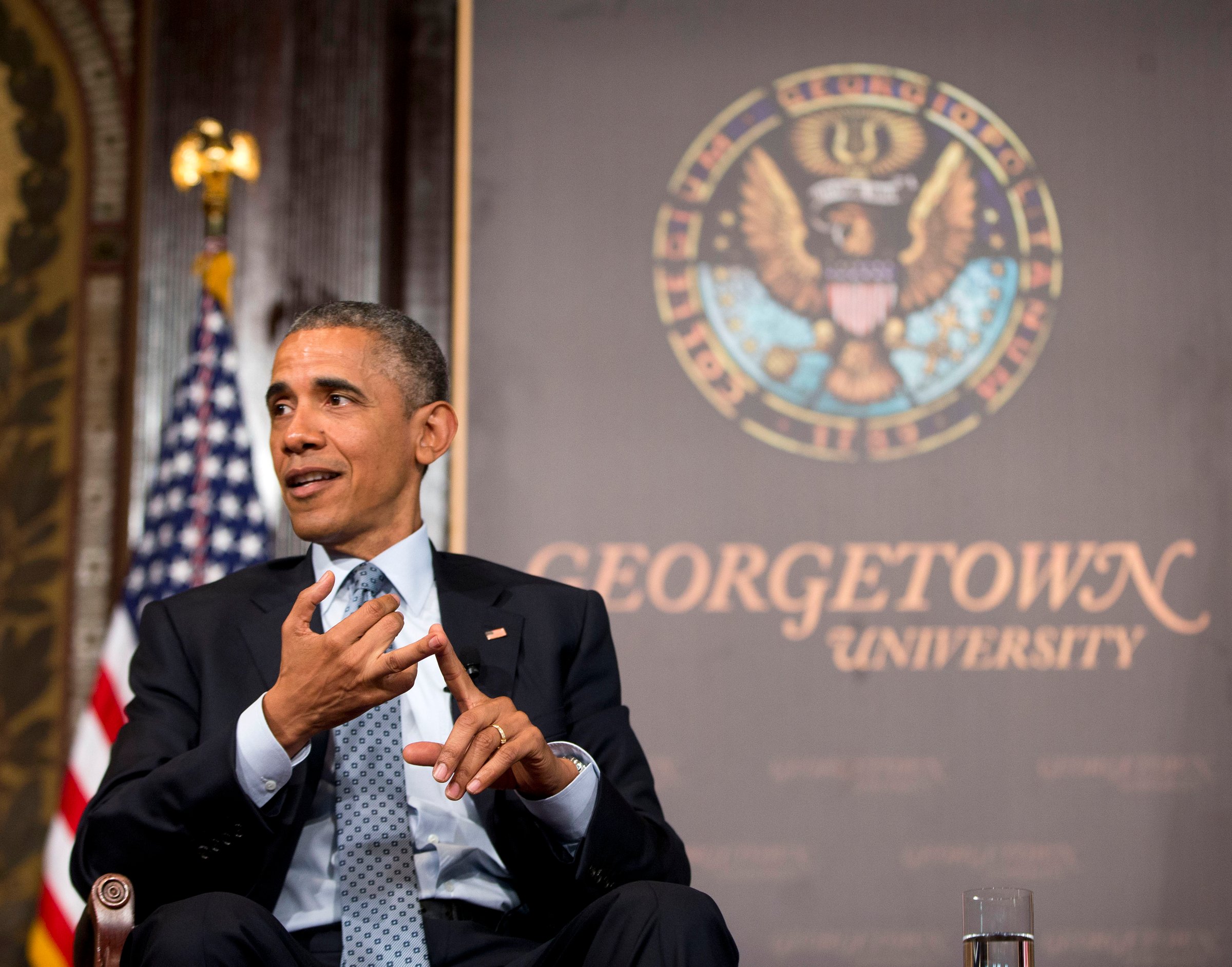
President Obama has been known to hold black audiences to a high standard, arguing that they need to do more to keep families together and educate their children. It’s a line that has rankled some in the black community, who note that he does not make the same case for white families in poverty.
“It is hard to avoid the conclusion that this White House has one way of addressing the social ills that afflict black people—and particularly black youth—and another way of addressing everyone else,” wrote Ta-Nehisi Coates in a much-discussed essay in The Atlantic in 2013 . “I would have a hard time imagining the president telling the women of Barnard that ‘there’s no longer room for any excuses’—as though they were in the business of making them. Barack Obama is, indeed, the president of ‘all America,’ but he also is singularly the scold of ‘black America.’”
On Tuesday, President Obama was pressed on the question in person at a Catholic-Evangelical leadership summit on poverty in Washington, and he did not back down, using the same speeches at the historically black Morehouse College in Atlanta and the all-female Barnard College in New York Coates referenced as examples.
“It’s true that if I’m giving a commencement at Morehouse I will have a conversation with young black men about taking responsibility as fathers that I probably will not have with the women of Barnard,” Obama said. “And I make no apologies for that. And this reason is because I am a black man who grew up without a father and I know the cost that I paid for that. And I also know that I have the capacity to break that cycle, and as a consequence, I think my daughters are better off.”
During a panel discussion on poverty at Georgetown University, Obama reiterated parts of his argument, which he has also made in recent discussions about unrest in Baltimore and the launch of a My Brother’s Keeper initiative aimed at young minority men, though he also noted the role that institutional racism played.
“In some ways, part of what’s changed is that those biases or those restrictions on who had access to resources that allowed them to climb out of poverty … all those things were foreclosed to a big chunk of the minority population over decades,” he said. “Over time families frayed, men who could not get jobs left, mother’s who are single are not able to read as much to their kids.”
He added, “All that was happening 40 years ago to African Americans and now what we’re seeing is those same trends have accelerated and they’re spreading to the broader community.”
More Must-Reads From TIME
- Dua Lipa Manifested All of This
- Exclusive: Google Workers Revolt Over $1.2 Billion Contract With Israel
- Stop Looking for Your Forever Home
- The Sympathizer Counters 50 Years of Hollywood Vietnam War Narratives
- The Bliss of Seeing the Eclipse From Cleveland
- Hormonal Birth Control Doesn’t Deserve Its Bad Reputation
- The Best TV Shows to Watch on Peacock
- Want Weekly Recs on What to Watch, Read, and More? Sign Up for Worth Your Time
Contact us at letters@time.com